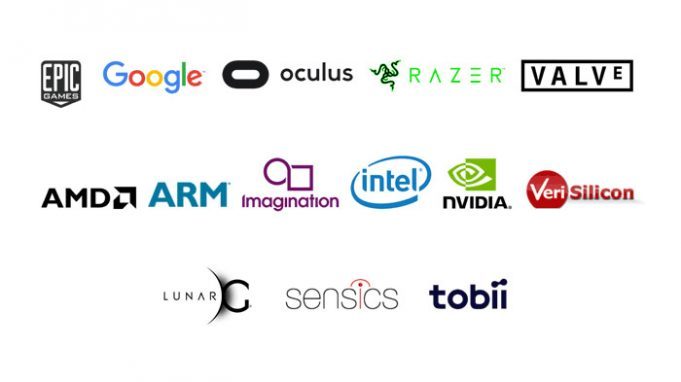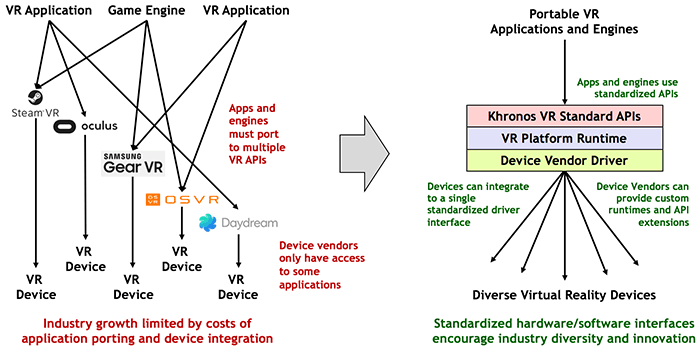 The Khronos Group announced on Tuesday that they have a critical mass of major VR players who are collaborating on a VR open standard. This VR open standard will have a software and hardware component that will enable VR application portability across VR platforms, but also minimize the cost for hardware integrations across different VR platforms. The Khronos Group has been able to get public support for this initiative from VR headset manufacturers including Valve, Oculus, Google, & OSVR as well as the major GPU and CPU players of AMD, NVIDIA, Intel, and ARM.
The Khronos Group announced on Tuesday that they have a critical mass of major VR players who are collaborating on a VR open standard. This VR open standard will have a software and hardware component that will enable VR application portability across VR platforms, but also minimize the cost for hardware integrations across different VR platforms. The Khronos Group has been able to get public support for this initiative from VR headset manufacturers including Valve, Oculus, Google, & OSVR as well as the major GPU and CPU players of AMD, NVIDIA, Intel, and ARM.
LISTEN TO THE VOICES OF VR PODCAST
Back in March 2015, Neil told me that the VR industry needed a period of innovation before trying to pin down an open standard. But now that the major VR headsets have now launched, there’s not enough significant differences between the major VR SDKs to warrant third-party hardware peripherals to have to create custom integrations. The benefits for standardization outweigh the costs of having a fractured ecosystem, because this VR open standard will enable smaller VR companies to write a single driver that allows them to interface with all of the major VR headsets.
I had a chance to catch up with Khronos Group President Neil Trevett to talk about this call for participation on this VR open standard. There’s not a preliminary specification that’s been developed yet, but they wanted to go ahead and make this announcement in order to let the industry know that there’s enough consensus for this to happen, and to encourage participation from other upstart VR companies.
Neil estimated that this standardization process usually takes around 18 months to finalize, but it may move quicker depending upon how motivated the major companies are to lock it down and remove barriers to innovation. Designing an open standard is more of an art than a science, and Neil said that they would try to limit the scope of the standard, but also allow for extensions. You can read more information about this initiative here with a number of quotes including Oculus, Valve, Google, OSVR, and Epic Games.
Support Voices of VR
- Subscribe on iTunes
- Donate to the Voices of VR Podcast Patreon
Music: Fatality & Summer Trip








